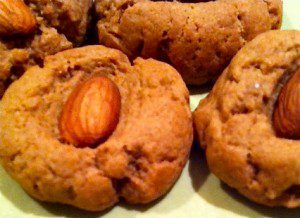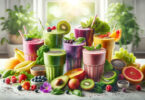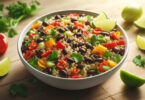26th April 2012
Guest Writer for Wake Up World
Organic sugar is marginally better for us than refined non-organic sugar but it is still sugar and thus has health risks. Sugar has been linked to: increased insulin levels, obesity, dental caries, diabetes, energy slumps, osteoporosis, high blood pressure, premature ageing, and sugar will also affect our immune system.
A common insecticide used in the growing of sugar cane crops is imidacloprid which is said to have a low to moderate toxicity “rating” from the manufacturers that created it. This is based on how it affects mammals and how easily it disperses in water and soiI. Imadicloprid has been stated to be one of the most toxic insecticides to bees and as such is said to be instrumental in the bee malady called Colony Collapse Disorder (CCD). It is also stated, and this theory I tend to lean more toward, is that CCD stems from a multi-toxic effect caused by a combination of factors with imadacloprid and other insecticides playing a small part of a much bigger toxic picture. Pesticides, Herbicides, Fungicides, and other chemicals have never been tested for their cumulative or mixed properties.
[pro_ad_display_adzone id=”110028″]
Clothianidin is another insecticide used on sugar cane that is highly toxic to bees. According to the Australasian Beekeeper, “In Australia, there are presently 37 registered NEONIC insecticides using IMIDACLOPRID and CLOTHIANIDIN. IMIDACLOPRID has been registered and in use since the mid 90’s. In the USA there are over 600 registered NEONIC products now.”
$262 million worth of clothianidin was used last year in the U.S. alone.
I don’t know about you but when creatures like bees and frogs die off in large amounts for no obvious reasons, I start to get a little uneasy. And in fact, for over 20 years I have avoided consumption of most products non- organic because at least with certified organic products I can have the confidence that we are not poisoning these creatures and ourselves. With organic farming techniques I know that the crop and soil is being nourished as opposed to our food being grown in nutrient deficient and questionably poisonous mediums.
This is however, just one of the reasons why I don’t use conventional sweeteners like refined white sugar. Sucrose works very differently in the body to other more complex sugars and I will talk about this in future articles.
In the recipe featured below I use coconut sugar. Coconut sugar comes from the coconut palm and should not be confused with the date palm. It is produced from the coconut palm blossom where it is sliced, boiled, crystallised and ground. It is said to be one of the most sustainable sweeteners. This sugar is mineral rich with a low GI and is becoming very popular. It has a rich full bodied flavour and is another favourite sweetener of mine in many different baked goods and a nice one to mix into warm beverages like my favourite chai recipe. The biscuit recipe below is made even richer in flavour thanks to using coconut sugar instead of traditional white sugar. My kids love these little treats!
Cardamom Biscuits
1 cup organic coconut sugar
1/2 tsp ground nutmeg
20 cardamom pods
3/4 cup organic butter or coconut oil
3 cups organic wholemeal spelt flour
1/2 tsp baking powder
36 whole organic almonds – optional
Grind sugar, nutmeg and cardamom in a spice or coffee grinder
Add to butter or oil and combine well. Mix all together well. It should be a nice dough consistency.
Roll into walnut size balls and place on baking tray at least 5cm apart. Push your thumb in or press an almond in to each one. Bake about 12 to 15 minutes in a 180 C oven. Remove from oven and cool on a rack before serving.
Soruces
About the Author
Jeani-Rose Atchison is a health advocate, and home-schooling mother of five who also finds time to write about nutrition, whole foods and environmental concerns. She authored, Every Day Vegan – 300 recipes for healthful eating which is a mainstay in vegetarian kitchens. Atchison’s latest book, Food for Thought – Thought for Food is chock full of delicious whole food recipes. It also takes a controversial look at the food we eat today and the processes involved in bringing it to your table. Can your food make you ill? The answer may shock you!
To find out more go to Jeani-Rose’s Facebook or Website
[pro_ad_display_adzone id=”110027″]






